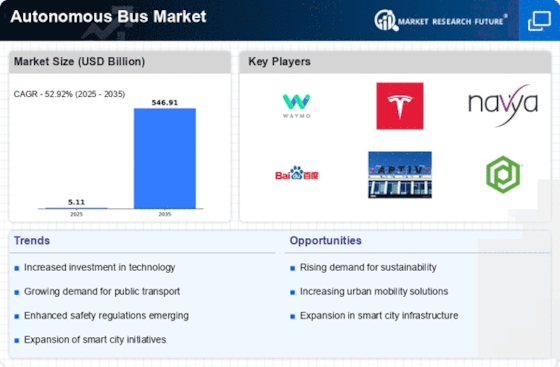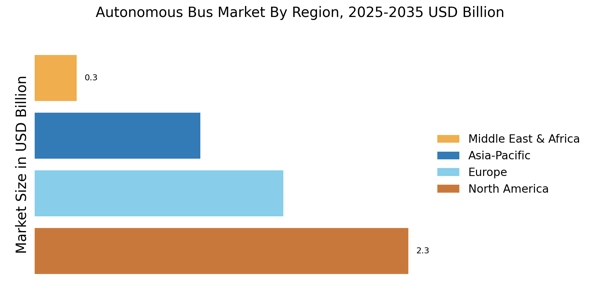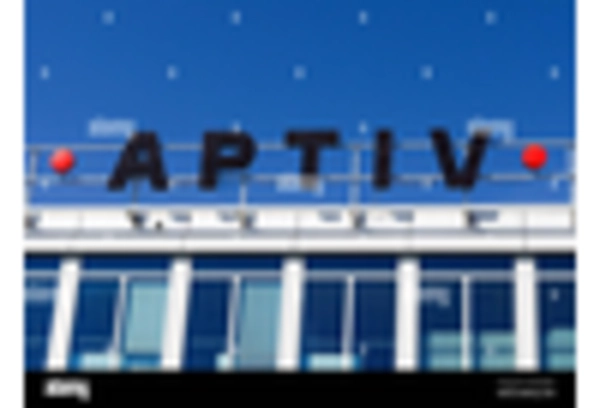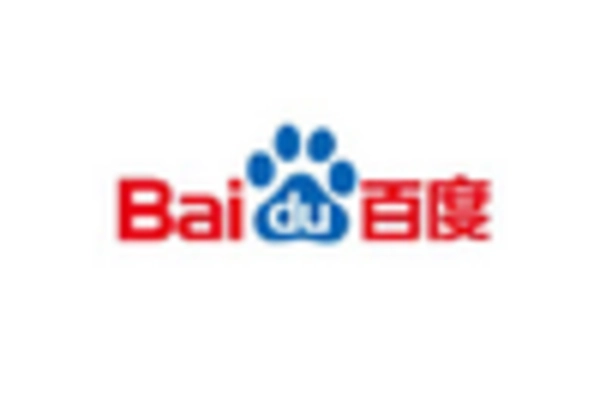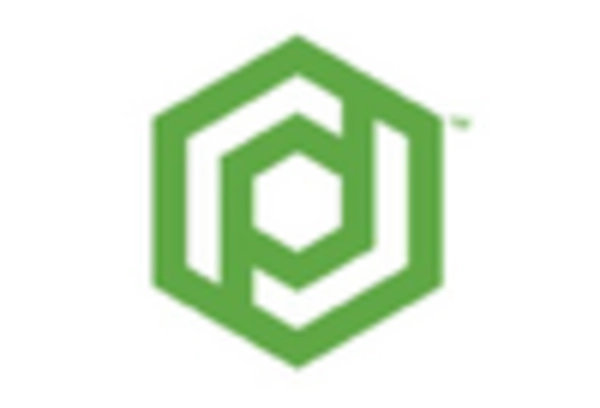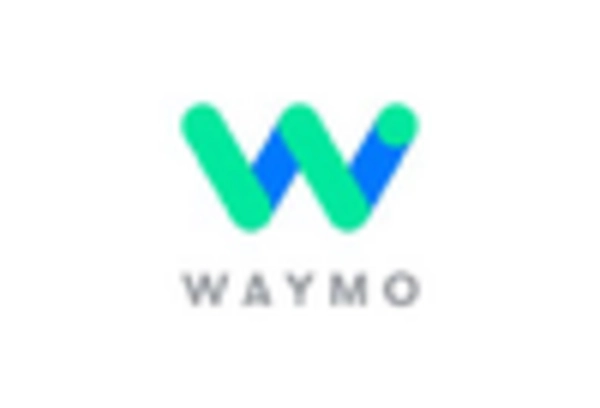North America : Innovation and Investment Hub
North America is the largest market for autonomous buses, holding approximately 45% of the global share. The region's growth is driven by significant investments in technology, supportive government regulations, and increasing urbanization. Cities like San Francisco and Austin are at the forefront, implementing pilot programs and infrastructure to support autonomous vehicles. The demand for sustainable public transport solutions is also a key driver, as municipalities seek to reduce emissions and improve efficiency.
The competitive landscape is dominated by key players such as Waymo, Tesla, and Proterra, which are actively developing and testing autonomous bus technologies. The presence of established automotive manufacturers and tech companies fosters innovation and collaboration. Additionally, regulatory frameworks in states like California and Texas are conducive to testing and deploying autonomous vehicles, further enhancing market growth.
Europe : Regulatory Framework and Innovation
Europe is the second-largest market for autonomous buses, accounting for approximately 30% of the global market share. The region's growth is propelled by stringent environmental regulations and a strong push for sustainable public transport solutions. Countries like Germany and France are leading the charge, with government initiatives aimed at integrating autonomous vehicles into public transport systems. The European Union's Green Deal also emphasizes the importance of reducing carbon emissions, which is a significant catalyst for the adoption of autonomous buses.
Leading countries in this sector include Germany, France, and the Netherlands, where companies like Navya and EasyMile are making significant strides. The competitive landscape is characterized by collaboration between automotive manufacturers and technology firms, fostering innovation. The presence of regulatory bodies ensures that safety and efficiency standards are met, paving the way for broader adoption of autonomous buses across the continent.
Asia-Pacific : Emerging Market with High Potential
Asia-Pacific is rapidly emerging as a significant player in the autonomous bus market, holding about 20% of the global share. The region's growth is driven by increasing urbanization, government support for smart city initiatives, and advancements in technology. Countries like China and Japan are at the forefront, with substantial investments in autonomous vehicle research and development. The demand for efficient public transport solutions is rising, particularly in densely populated urban areas, which is further fueling market growth.
China is leading the charge, with companies like Baidu and other local manufacturers actively developing autonomous bus technologies. The competitive landscape is marked by a mix of domestic and international players, all vying for market share. Government policies in China and Japan are supportive of autonomous vehicle testing and deployment, creating a conducive environment for innovation and growth in the sector.
Middle East and Africa : Resource-Rich and Developing Market
The Middle East and Africa region is gradually emerging in the autonomous bus market, currently holding about 5% of the global share. The growth is primarily driven by urbanization, increasing investments in infrastructure, and a growing focus on sustainable transport solutions. Countries like the UAE and South Africa are leading the way, with initiatives aimed at integrating autonomous vehicles into public transport systems. The region's unique challenges, such as varying regulatory environments, are being addressed through collaborative efforts between governments and private sectors.
In the UAE, for instance, the government is actively promoting smart transport solutions, which includes autonomous buses. The competitive landscape is still developing, with a few key players beginning to establish their presence. As the region continues to invest in technology and infrastructure, the potential for growth in the autonomous bus market is significant, paving the way for future advancements.


